
Food waste trial research supports bid for wider funding
The Sustainable Sidekicks (SSK) were commissioned to support Fife Council with research and a behavioural science-informed communications approach for a food waste service trial in the three Ravenscraig high-rise flats in Kirkcaldy over three months, from late August to the end of November 2023. Just over 1.5 tonnes of food waste was collected and the insights from the research were used to win funding from Zero Waste Scotland to roll-out the service to the remaining high and mid-rise blocks in Fife.
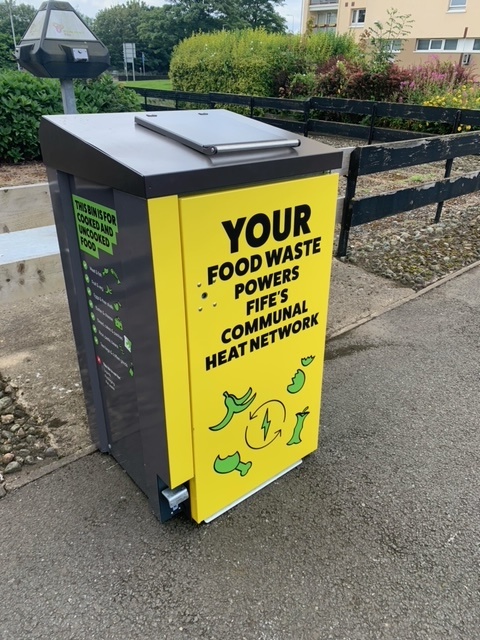
Project objectives
The objectives were to:
- Maximise participation in the food waste service,
- Learn about the barriers/concerns, and find ways to overcome them,
- Trial communication materials,
- Use the insights for a wider food waste service rollout.
Communications
Building on the insights and success from the ReLondon ‘ Flats Repackaged’ project, the project used and developed their colourful and salient branding and comms materials which were in eye-catching lemon and lime green- not the usual council colours.
Working with MetroStor (the bin provider) designers the three food waste bins were designed with vinyl wraps that had three messages:
- A social norming message ‘Ravenscraig is recycling’
- A positive descriptive norm ‘ Thank you’
- Pictorial instructions on what went in the bin
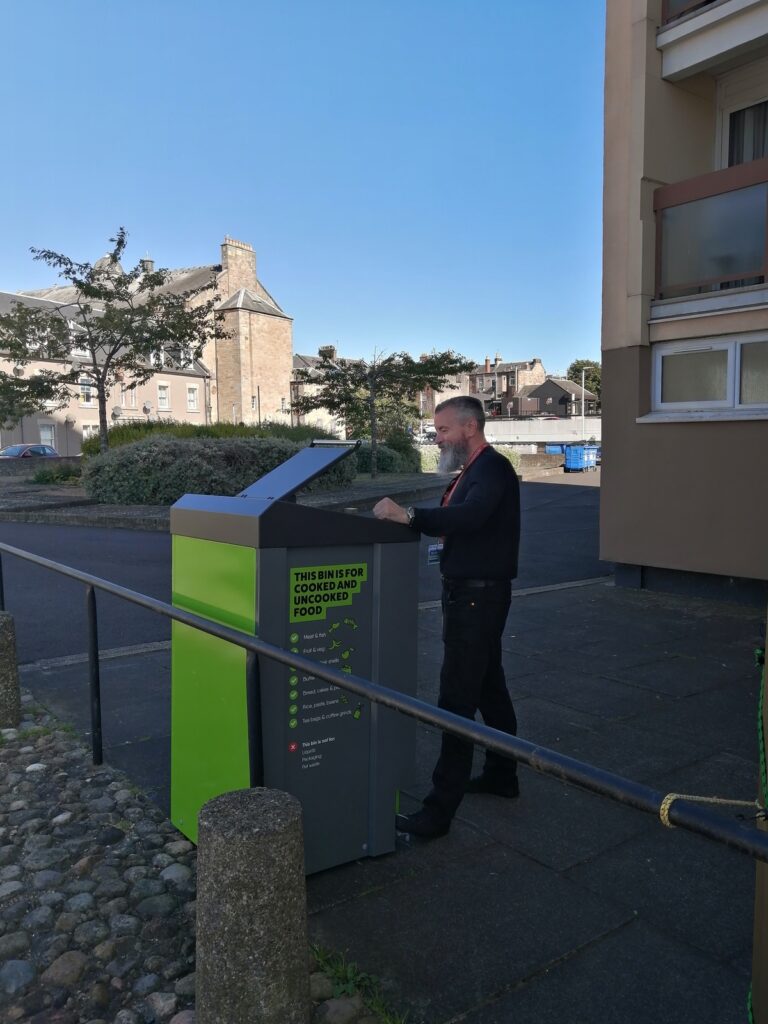
Once the trial was up and running, posters were put up in the buildings to let people know how much food waste had been collected, these were aimed at:
- Providing feedback so those participating knew their actions were making a difference.
- Letting others know that their neighbours were participating (social norming)
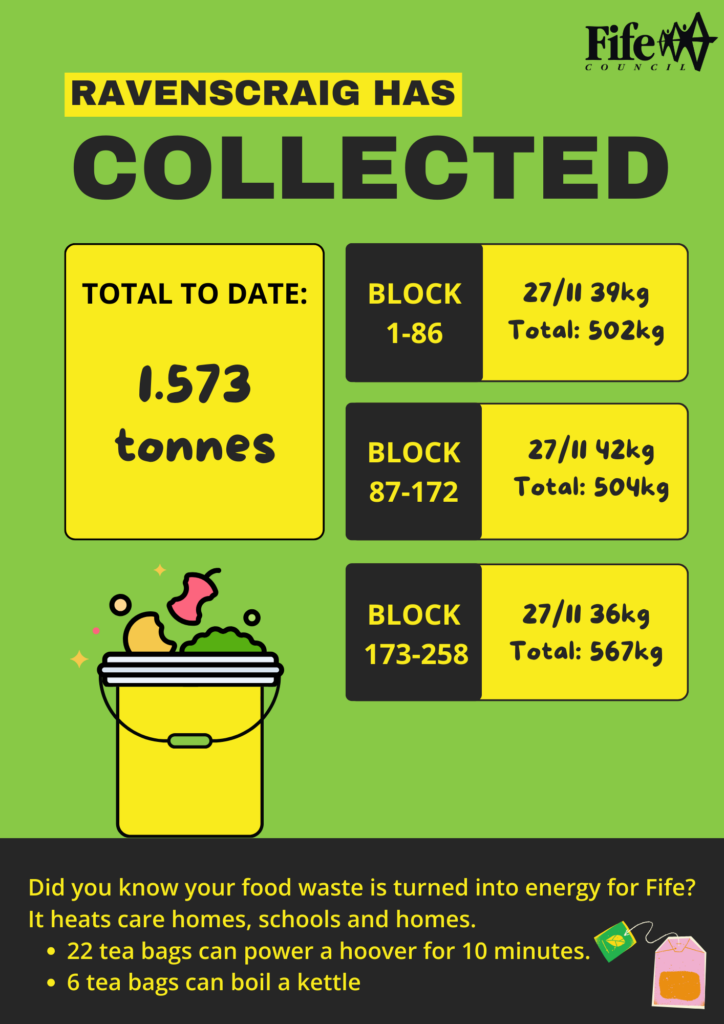
The Research
The research consisted mainly of qualitative 30-minute interviews with 15 residents and quantitative short surveys completed by 60 residents.
Additional information was collected through:
- The council weighing food waste bin weekly,
- Feedback from recycling advisors talking to residents,
- Researcher attending a Tenants Association meeting,
- Researcher being present around the flats for 3 days, picking up on issues and hearing, conversations with residents and council staff.
Key insights from the research
- Bin location – Situating the bins directly outside the doors of the blocks has made it possible for people to use the service, even those who are no longer recycling as the recycling bins are too far away.
- Caddy liners – The most widespread query was where to get caddy liners from when they run out, with an expectation the council would provide them for free. The main complaint was around the quality of the caddy liners provided- they were weak, and leaked and people feared they would break when taken downstairs.
- Information recall – By providing pictorial checklists on the top of the caddy and front of bins, everyone interviewed knew precisely what to put and not put in the bin.
- Personal benefits – Reducing smells in the chutes and people’s households were more dominant and strongly felt reasons for using the service than the environment.
- Infrastructure – People liked the pedal feature, so they didn’t need to touch the bin. The reduced aperture has prevented any large bags from being dumped in the bin although there has been some food packaging deposited in it.
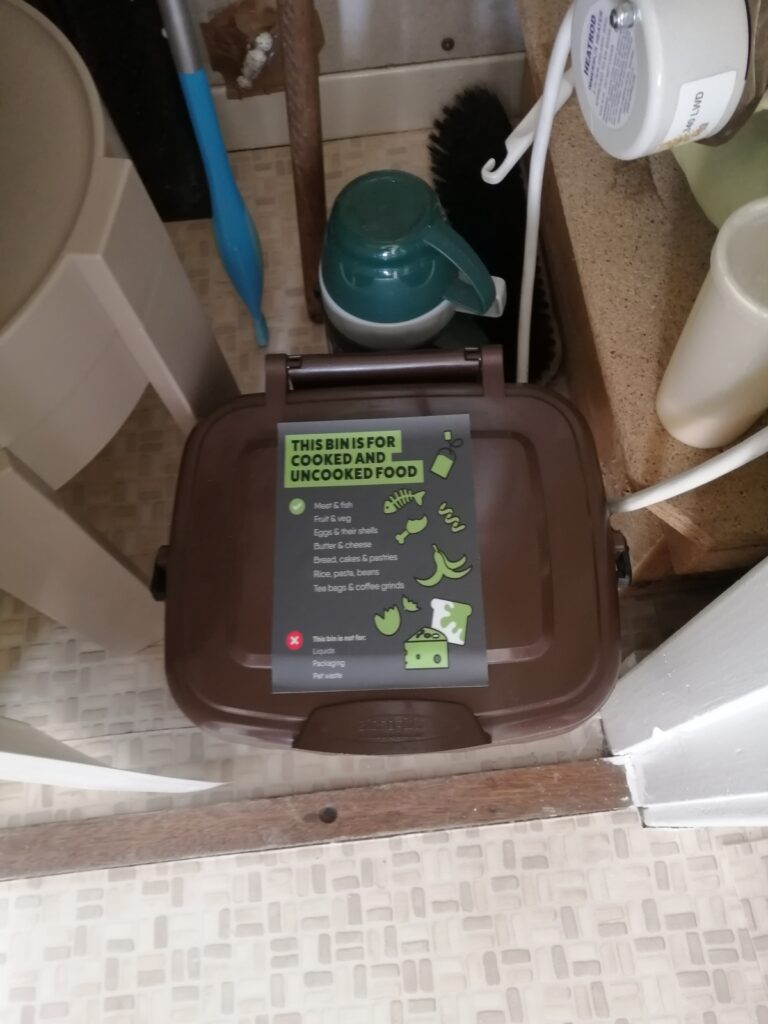
“My general waste bin is cleaner and I need to go to the chute less”
“With less food waste going down the chute, the chute and corridors will smell less”
“My waste bin at 173 -258 is packed full and there has been a big improvement, to the smell in the bin store.” Paul Erskine, Caretaker
“I like the foot pedal, it makes the bin hygienic to use”
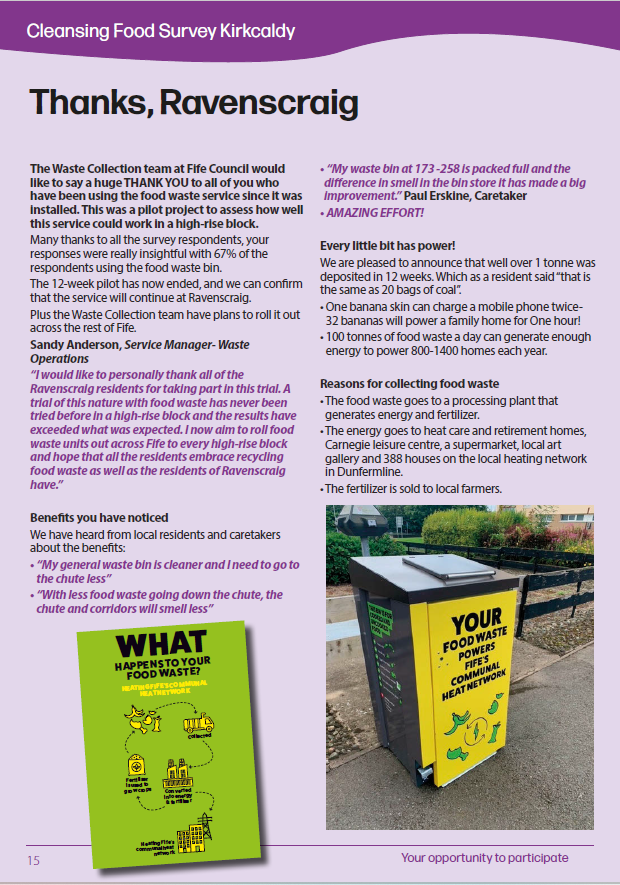
Further roll-out
The insights from the trial were used to successfully secure funding with Zero Waste Scotland to provide bins and caddies for all high-rise and medium rise flat residents. The roll-out will happen as a staged process starting with Broomhead flats in Dunfermline first and then work from there to Raeburn Heights in Glenrothes.

“ I was delighted with the support provided from sustainable sidekicks. I have been involved in the past with bin projects and roll outs but by taking a new behavioural science approach supported by Sustainable sidekicks has been a revelation to me and I think has provided a much better customer experience. This has been reflected in the success of the trial and how well informed and engaged the residents involved were. The insights I have gained working with Sustainable sidekicks will be invaluable to me in future decision making and recycling based rollouts across Fife.”


